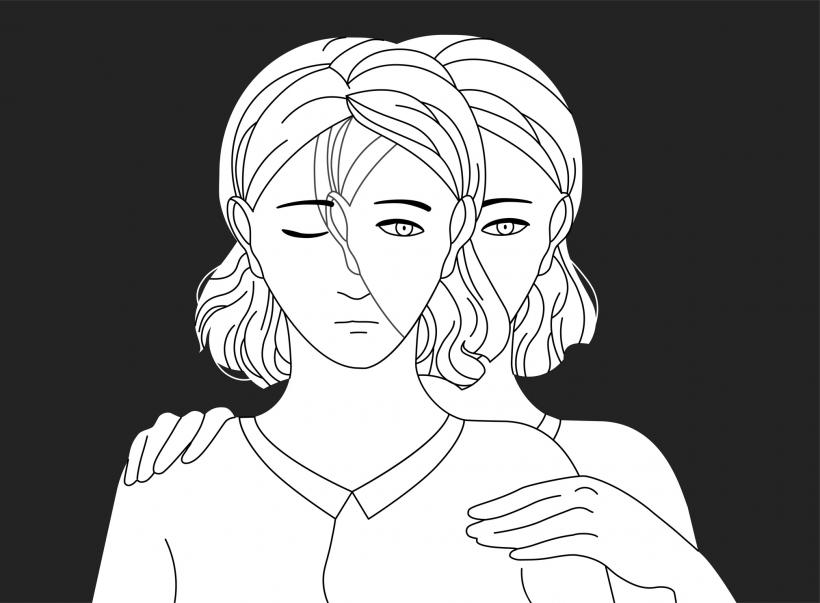
While I would never have judged anyone else for having a mental illness, I couldn’t bring myself to ask for help.
‘Stigma’ is a difficult word.
Difficult enough that there’s a slow-simmering debate among mental illness activists over whether it should be used at all. At first, this seems counter-intuitive. Of course, we should be talking about mental illness and stigma! But there’s also a question of how the words we use affect public perceptions of an issue.
In mental illness bingo, the word that comes up most often in the media is stigma. And the problem is that the more we talk about stigma, the more we reinforce its association with mental illness. For some people, the answer is to banish the word from all media coverage of mental illness. It’s a compelling argument and one that I believe is also wrong.
It’s hard enough already to talk about the realities of mental illness. We should have the freedom to choose a word that fits our experience of the world.
It’s worthwhile taking a closer look at the argument from people who oppose using the word stigma, many of whom do important work advocating for mental health care reforms. No one is arguing that we refuse to acknowledge the issues people with a mental illness face. Instead, the suggestion is to use other words like discrimination and bigotry in place of stigma. In this, the advocates of ‘never stigma’ have a point. One of the by-products of living in an unfair world is that we have a broad vocabulary to describe injustices. There are certain words which we should be using more often and more pointedly, calling the powers that be to account.
However, for me, the answer isn’t a blanket ban on the offending word. This because stigma has its own distinctive meaning which isn’t covered by the words which are offered in its stead. This is something that I know from personal experience. In my late 20s, I was diagnosed with OCD. It took years of symptoms before I finally admitted I was struggling. My reluctance to come forward was, without question, bound up with stigma. It was less with the fear of external judgment and more a question of my presumptions about weakness and strength. While I would never have judged anyone else for having a mental illness, I couldn’t bring myself to ask for help.
For many of us, the most powerful consequences of stigma come from within.
It’s the result of living in a world which tells us, time and time again, that having a mental illness is something worthy of shame. That we suffer from a less legitimate form of illness and that asking for treatment is a concession for the weak. This message becomes internalized over time. How could it not? It’s everywhere, from cop shows, where the battered protagonist is finally coerced into asking for help, to all the rest of our stoic heroes. We’re a society who admires silence in suffering. It’s a perverse stance. I look at the people that I know with mental illnesses and see their evident strength, not just in managing their symptoms, but in admitting that they exist at all.
I would argue that stigma is the word which best encompasses this unique blend of shame and embarrassment. This is not to say that stigma doesn’t act in concert with other forces. Discrimination and bigotry are the by-products of stigma and stigma, in its turn, is reinforced by both. But bigotry and discrimination are things which are done to us, not by us, at least not in relation to ourselves.
You Might Also Like: What If I've Given My Children Bipolar Disorder?
It’s stigma which is pervasive enough to be absorbed internally by the people it punishes. Those of us with mental illnesses should be able to have room to address that. It’s hard enough already to talk about the realities of mental illness. We should have the freedom to choose a word that fits our experience of the world.
Still, there’s considerable room for common ground in this debate. By focusing exclusively on stigma, the media and mental health campaigns are in danger of perpetuating prejudice. Everyone who cares about improving public dialogue should help push back. There’s also a pragmatic aspect to expanding our vocabulary around mental illness. Stigma often focuses on attitudes rather than institutional shortcomings.
It’s worth spending more time exploring why so many of us with mental illnesses are denied treatment or pushed out of jobs. You have a medical condition that isn’t being treated? That’s discrimination. Someone thinks you’re less employable because of your illness? That’s bigotry. There’s so much more room to touch on these specific failings concerning employment, medical care, and governmental support. The conversation can’t begin and end with stigma.
Our society is at the very beginning of acknowledging that mental illnesses are legitimate.
The beginnings of change are always rough and rarely subtle. Well-intentioned organizations will often seize on the most obvious way to help, without recognizing any of the complexities involved. For many charities and media organizations, what that means is narrowing in on stigma to the exclusion of other, equally important, stories. Good intentions aren’t an excuse for getting it wrong. However, the exclusion of the word stigma strikes me as a heavy-handed approach to a complex issue.
Stigma continues to play a role in how we collectively interact with mental illness. Could you assemble enough other words to express what stigma does? Yes, probably. But, in the end, stigma is a clear and serviceable way to describe an important concept. Public conversations aren’t straightforward and sacrificing clarity doesn’t help.
I’d argue that the solution lies in broadening the conversation around mental health to include more voices and different kinds of stories.
The way to do that is to build on what’s already there, not by making an already inadequate conversation ever narrower.
We can all focus on demanding that the full spectrum of stories about mental illness be represented. Both sides of the stigma debate can also join in holding charities and the media to account when that doesn’t occur. Ultimately this debate is a sign of progress, evidence that more of us are being brought into the fold. People with a mental illness have historically been excluded from conversations around our place in society. Now we’re joining in, finding topics with which we agree and disagree. The public dialogue around mental illness still has a long way to go, but this is where it starts: as a raucous and encouraging mess. I intend to keep using stigma but have never been happier to find people who think that I’m wrong.








